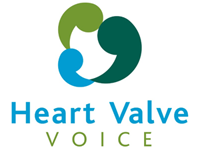Pre-Treatment
QUICK LINKS
Pre-Treatment
– Medication
– Shared Decision Making
– Patient Perspective
– The Multidisciplinary Team
– Family, Friends & Carers
Heart Valve Disease
QUICK LINKS
Preparing for Heart Valve Disease Treatment
Receiving a diagnosis of heart valve disease is a significant moment, and preparing for treatment is crucial to ensuring the best possible outcomes. At [Charity Name], we’re committed to guiding you through every step of this process. Here’s what you need to know about preparing for treatment, engaging in shared decision-making, and understanding the role of the multidisciplinary team (MDT).
Preparing for Your Treatment
Preparation for heart valve disease treatment involves several key steps:
- Understanding Your Condition: Before starting treatment, make sure you fully understand your diagnosis. Learn about the specific type of heart valve disease you have, the severity, and the treatment options available. This will help you make informed decisions and participate actively in your care.
- Consultation with Specialists: You may need to meet with various healthcare professionals, including cardiologists, cardiothoracic surgeons, and possibly other specialists. These consultations will help determine the most appropriate treatment plan tailored to your needs.
- Diagnostic Tests: Additional tests may be required to assess your heart’s condition in detail. These might include echocardiograms, electrocardiograms (ECGs), and other imaging studies. Be prepared to undergo these tests as they provide crucial information for your treatment plan.
- Discussing Treatment Options: Your healthcare team will present different treatment options, which may include medications, minimally invasive procedures, or surgical interventions. It’s important to discuss the potential benefits and risks of each option.
- Lifestyle Adjustments: Depending on your treatment plan, you may need to make certain lifestyle changes. This could include adjusting your diet, incorporating specific exercises, or other modifications to improve your heart health.
Consultation Guide
Our Consultation Guide will provide you with information on heart valve disease and outlines the type of questions your doctor may ask you during a consultation about potential heart valve disease. It also provides you with useful hints and tips on how to prepare for the consultation and gives you suggestions as to the most useful questions you should ask your doctor.
Symptoms Tracker
Our Symptoms Tracker has been developed to help people, who think they may be suffering from heart valve disease, to capture their symptoms ahead of visiting their healthcare professional (HCP). These symptoms may include shortness of breath, chest tightness and/or pain, fatigue, light-headedness, dizziness, fainting and difficulty exercising.
Tips for family, friends and carers
Tips for Family, Friends and Carers.
Often, before treatment, their mind will be anxious and pre-occupied with thoughts of the actual procedure. It is essential that you look beyond this, and plan for their recovery pathway. Speak with your family, and explain what activities they might need help with.
Pre-Treatment
QUICK LINKS
Pre-Treatment
– Medication
– Shared Decision Making
– Patient Perspective
– The Multidisciplinary Team
– Family, Friends & Carers
Heart Valve Disease
QUICK LINKS



